275,000 tonnes of plastic are used each year in the UK, That’s about 15 million bottles per day*
Who doesn’t love ice caped mountains and deep cut gorges? No one would deny that our environment is precious. Yet, so often we don’t live in a way that reflects this. Consumerism, that nagging desire for more, leaves us dissatisfied and with wardrobes crammed full of clothing. I speak for myself here. But it’s not just our clothing habits that are the problem; creating waste has become endemic, a way of life. So much so, that according to Jonathan Wise, “If everyone in the world used the same amount of natural resources as we do in Europe, it would require 3 planets to allow the Earth to replenish itself.” Through pumping too much CO2 into the atmosphere we’ve already warmed up our planet by 0.8C and scientists agree that the line we must not cross is 2C. A fact reflected by the recent agreement in Paris, with 196 nations committing to reducing emissions. Though many fear it is not enough.
Thankfully there are people striving to find new and innovative ways of producing clothing. At the heart of Deborah Campbell Atelier, a British made ethical label, is the desire to use fabrics with a low environmental impact. She wants to tackle our waste problem and turn our garbage into fashion. The dress pictured is made from recycled plastic bottles. Levis have done a similar thing with their Waste<Less denim. Though only 20% of each jean contains post-consumer recycled plastic.Whereas the Newlife fabric, Deborah is using, is made from 100% recycled bottles collected and processed in Italy. What I love about Deborah’s brand is that she doesn’t stop there. She seeks to encourage her customers to buy better, by buying British and ultimately to buy less. Marketing suicide maybe, but it’s remarkably refreshing.
-100% waste
Subscribing to a company’s ethos is one thing, but you wouldn’t wear an item of clothing unless good design was paramount. I love Deborah’s clean lines and minimalist style, mixed back with an abstract print. I’ve teamed my -100% waste dress with: a black polo to keep me toasty warm, sheer black tights and my trusty navy Peacoat. The accessories are several years old, the boots bought in 2011 and the bag from a small boutique in 2009.
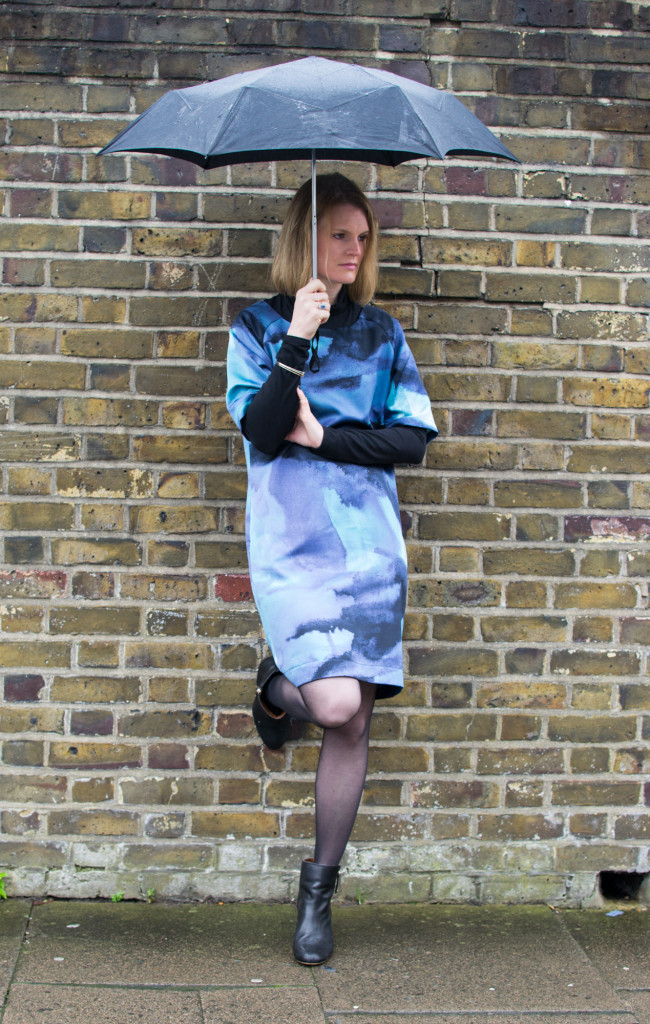 -94% water
-94% water
There are many factors in the making of a garment, which as consumers we aren’t aware of. Dying and printing fabric is water intensive, polluting and often done in countries where clean water is scarce. Yet, all Deborah Campbell’s prints are printed digitally, which is much kinder to the environment as it utilises less water.
-32% CO2 emission
But why should we buy British? Yes it’s supporting our local economy and giving people jobs, but it is clearly more expensive. In a culture where we shop around for the cheapest price, at first glance it doesn’t make sense. Deborah is committed to paying a fair British wage throughout the supply chain, and the cost of the garment reflects that. This begs the question; do we understand the true cost of a garment? As a fashion buyer, I can say that a company has much more control over quality, traceability and who is making your garment if it is made in the UK. The award winning Welsh manufacturer Anderson Apparel, made the Isabelle Indigo Dress I am wearing. So, of all the items in the shoot, this is the one that I know #whomademyclothes?
At £155 for a dress, you could argue that the high prices of sustainable fashion, means it is only for the rich. Yet, maybe we need to re-educate ourselves? How many new items of clothing do we need each year? If we choose to buy sustainably, prices will inevitably be higher and so we will have no option but to buy less and choose well. But what if that isn’t such a bad thing?
*Facts from recycling-guide.org.uk
Deborah Campbell Atelier supports the Phoenix Foundation, a charitable fund that support vulnerable children suffering from burns in war zones. 20% off the profits of their T Shirts goes towards this foundation.
Get yourself an exclusive 20% discount until the end of December 2015 with code n4mummy15
- Dress, Deborah Campbell Atelier – £155
- Black Polo, Marks & Spencer – £15.75
- Tights, Marks & Spencer – £6
- Coat, Next – £55
- Boots, Zara
- Bag, unknown
- Star Ear Cuff, Tada & Toy – £38
Created in collaboration with Deborah Campbell Atelier / Photos by James Burkitt

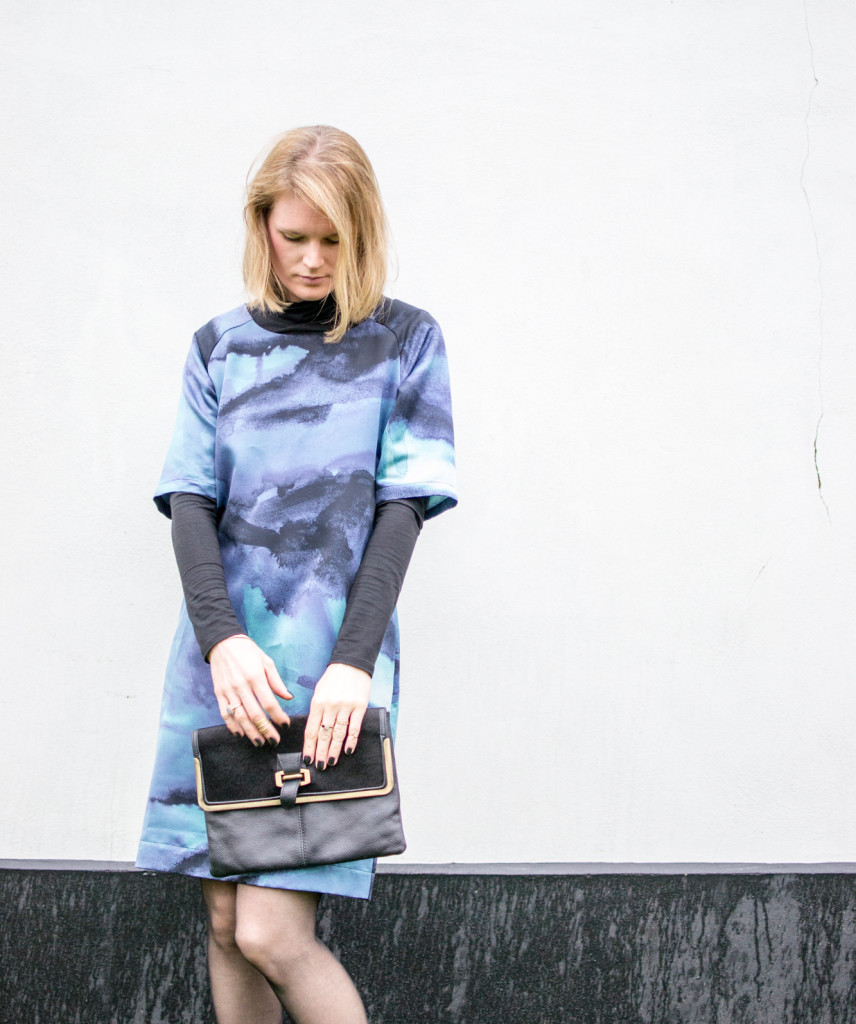
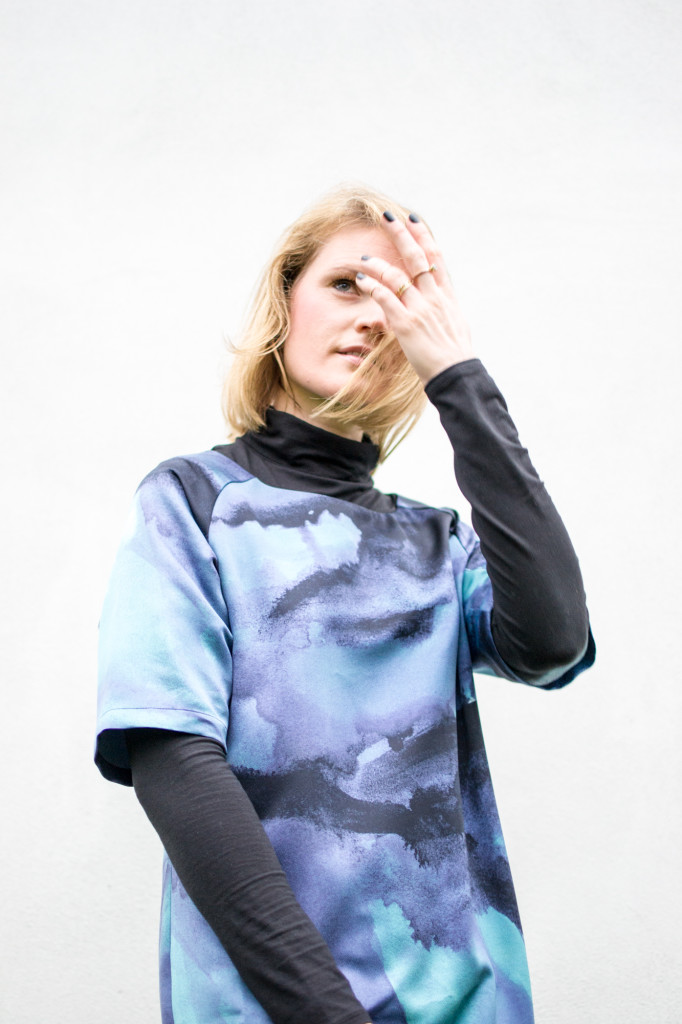
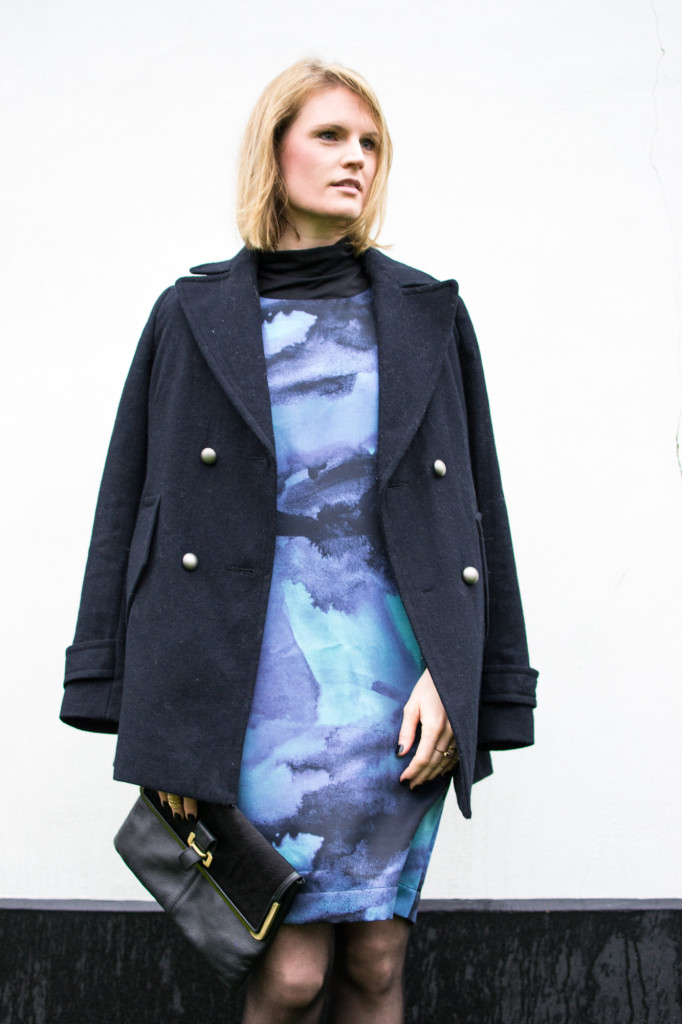
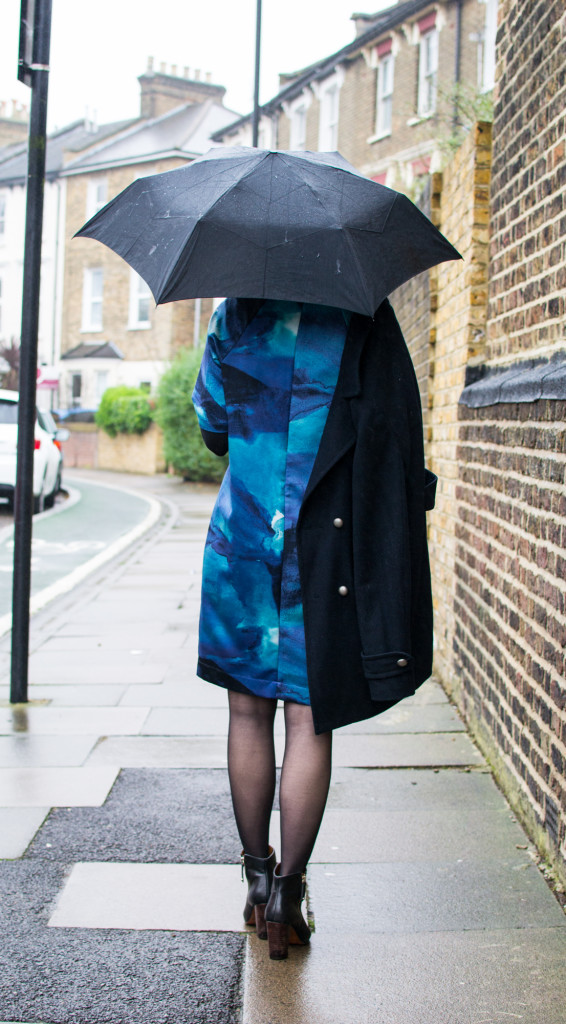
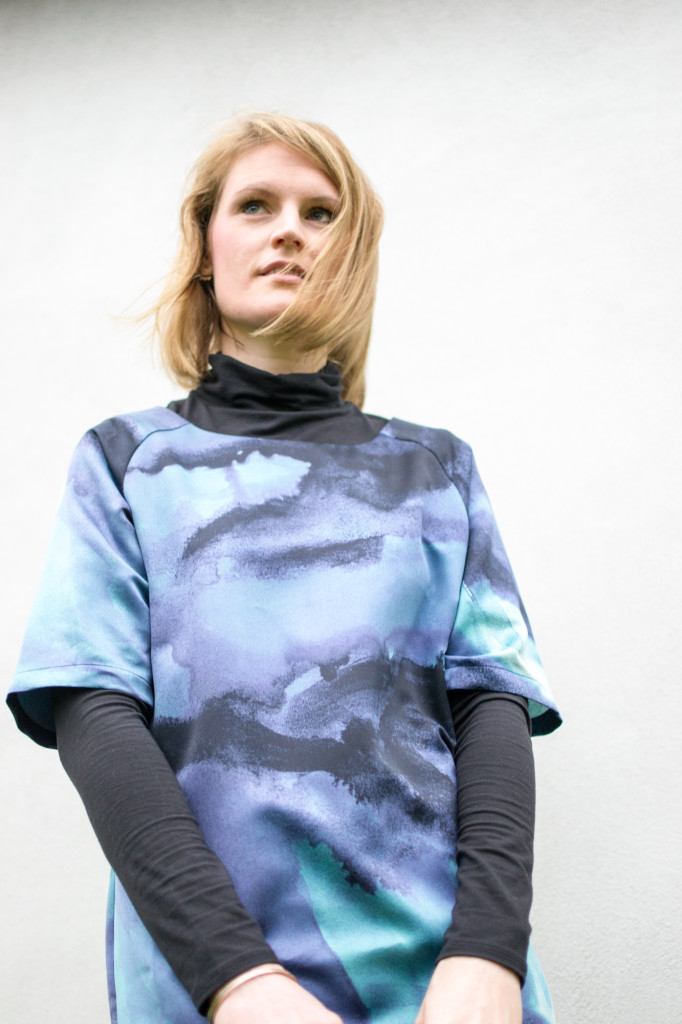
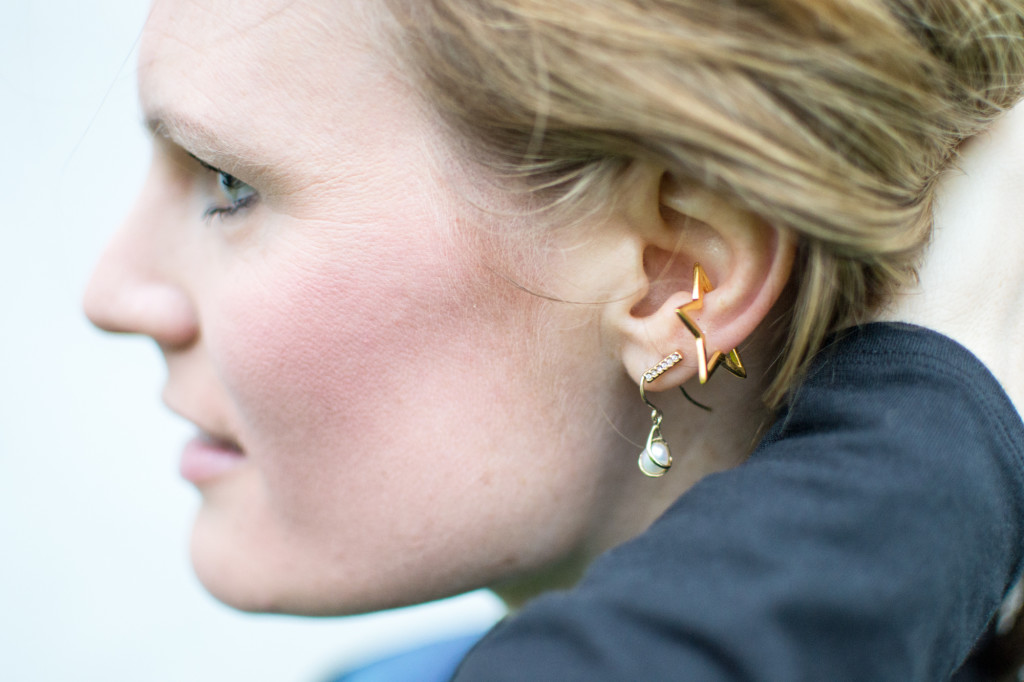
A brilliant informative piece. Thanks.
Author
Thanks Rachel, I was expecting the fabric to feel stiff but actually it was just like any other piece of fabric – amazing.